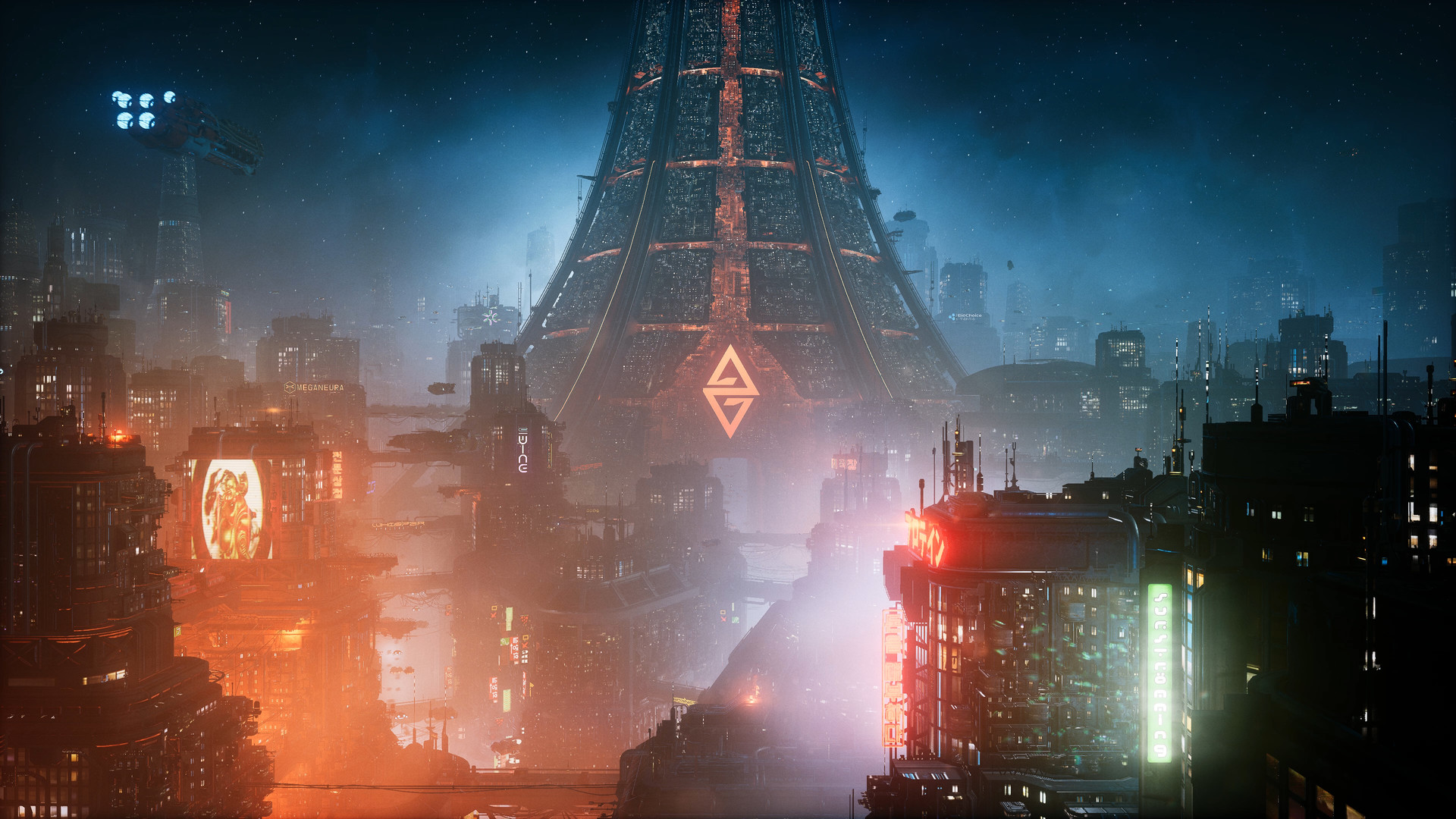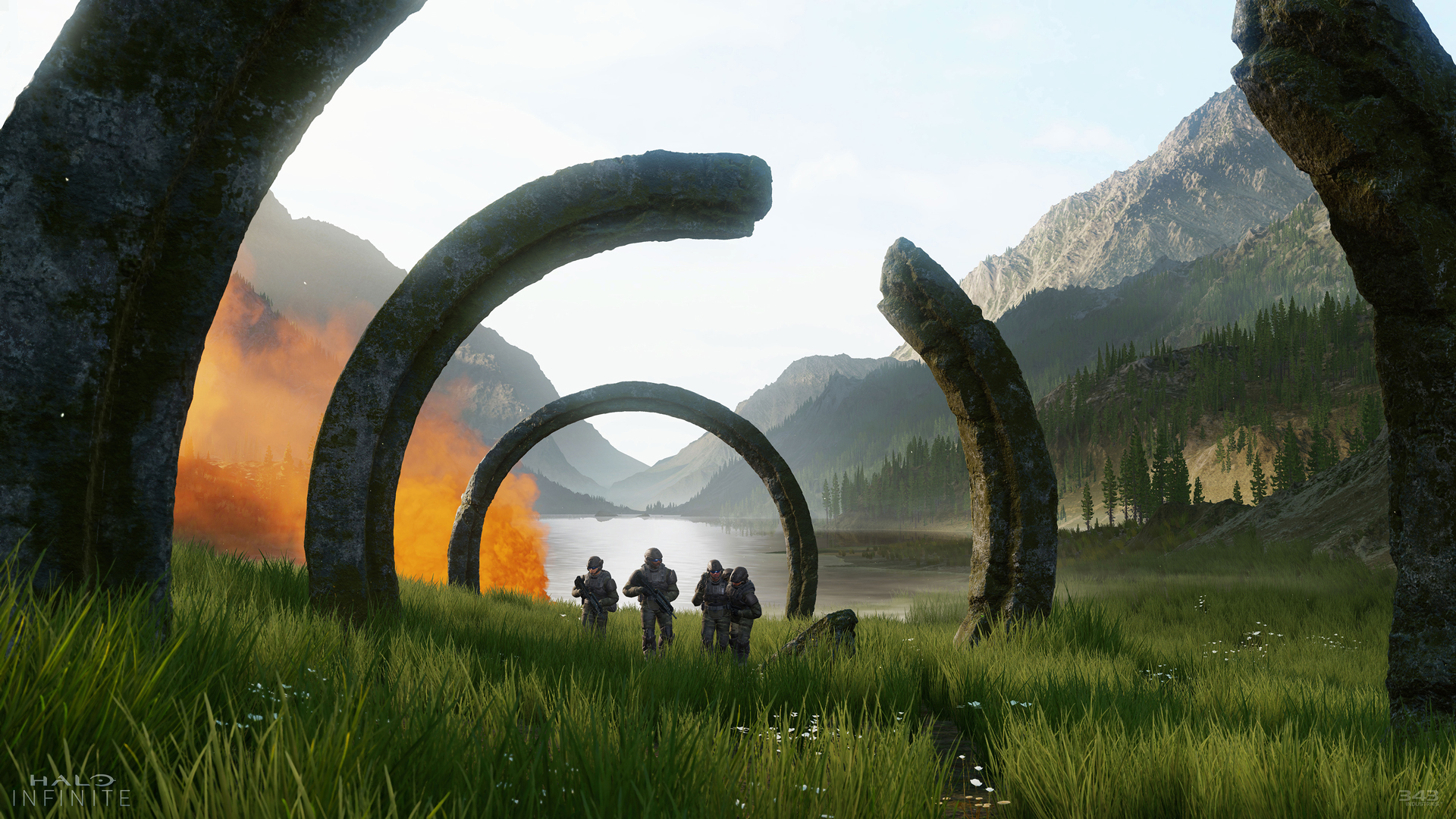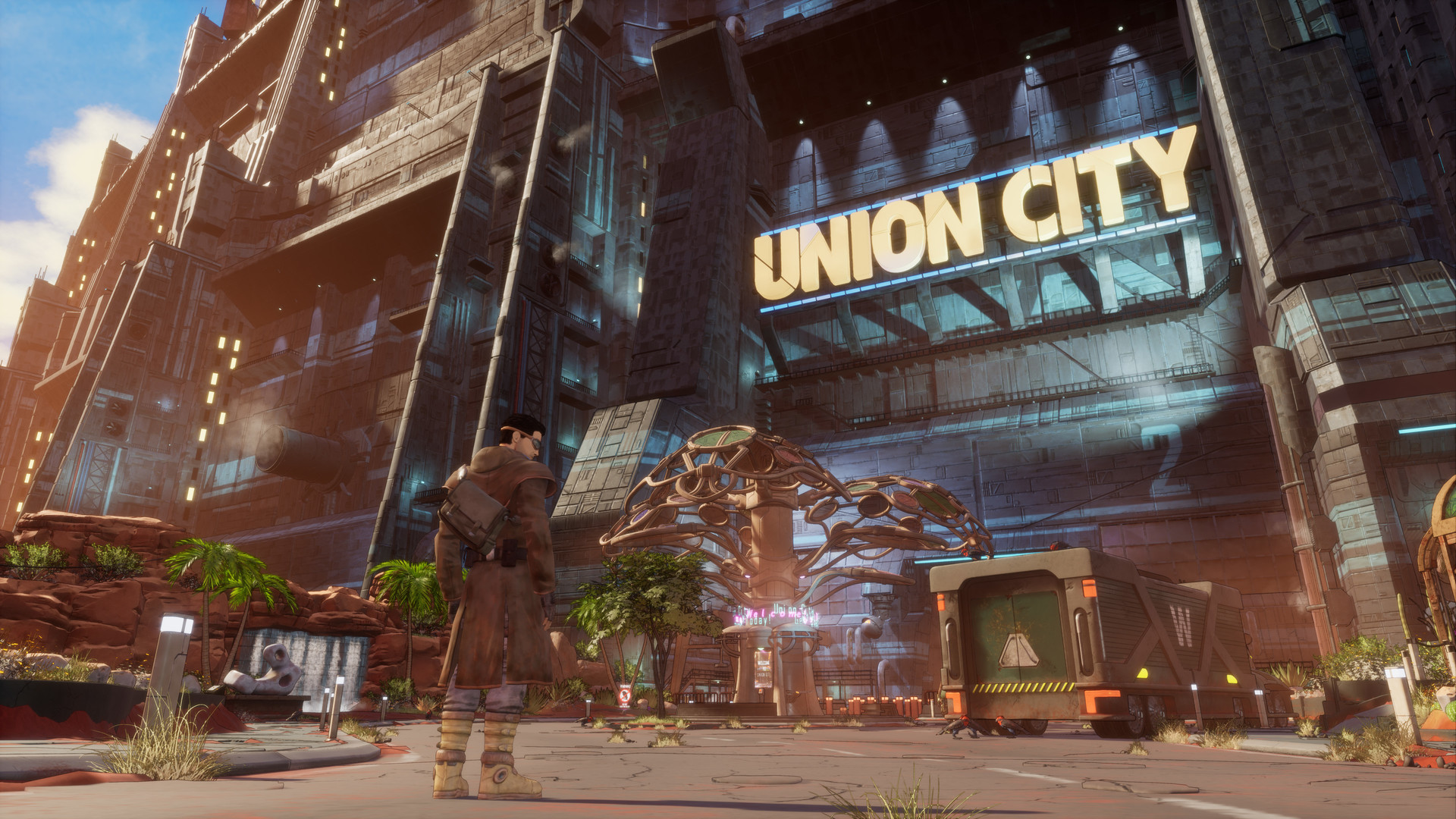The Future of Gaming: Developers explore how the PS5 and Xbox Series X could change the way that we play in the next generation
The Future Games Show speaks with some of the world's leading developers to explore the future of console, cloud, and mobile gaming

A new generation of gaming is upon us. With home consoles such as Sony's PS5 and Microsoft's Xbox Series X set to release in late 2020, developers are preparing to change the way that we play forever. We see companies like Google Stadia continuing to push the boundaries of cloud gaming technology, while studios like Epic Games are beginning to show us what the next-generation of engines will be capable of delivering.
As part of the The Future Games Show, GamesRadar+ caught up with leading developers – in fields including graphics, audio, storytelling, and machine learning – to discover how the next generation of hardware will push video games in a way that we have never experienced before. You can watch a standalone clip of each of those investigations below.
The future of game worlds
Whether they're entire countries recreated from the ground up or isolated rooms layered in meticulous detail, video game worlds are the places we go to escape, explore, socialise, and role-play, and they're about to get even more immersive and liberating with the onset of next generation hardware.
"We can already make game worlds that are too big for the amount of content that's in them, so of course graphics will take a huge leap forward, but it's the complexity, the diversity, and the freedom to play around in them that I think will be the biggest leap," explains Tor Frick, co-founder of Neon Giant and game director on The Ascent. "The way that I see game worlds changing in the next generation is with a bigger focus on interaction and making the worlds feel truly alive."

For Mike Bithell, creator of titles like Thomas Was Alone and John Wick Hex, the ability to stream assets via the PS5 and Xbox Series X's high-speed SSDs could reshape the nature of video game level design as we know it. "I think players underestimate how much the physical limitations of loading data actually affect the games they play," Bithell says. "How big the worlds can be, how fast you can move through them, the variety of space available to you – all of that is constrained by those limitations. But it feels like that is about to be loosened a little, which is great for all of us; for both designers and hopefully gamers in the end as well."
Jason Ronald, Microsoft's director of program management for Xbox Series X, agrees with this assertion. He tells GamesRadar that the super fast SSD in the Xbox Series X is empowering developers to throw out the rule book and reconsider how they can make games for the next generation platforms. "The SSD is the foundation of the Xbox Velocity Architecture, which was a radical reinvention of how game asset streaming works. And what that really does as a game developer, it removes all constraints from how you choose to build the game. No longer do you have to funnel players through individual hallways or elevators, you can kind of unshackle a game developer's creativity to create those large living open worlds that players all want to enjoy."

"No longer do you have to funnel players through individual hallways or elevators, you can kind of unshackle a game developer's creativity to create those large living open worlds that players all want to enjoy."
Jason Ronald, Microsoft
That said, one of the biggest leaps when it comes to next-gen video game worlds might be what we can’t see. Anna Kipnis, senior interaction designer at Google Stadia, is particularly excited about the prospect of artificial intelligence, for example, and the prospect of in-game systems with the ability to learn from experience without being specifically programmed. "The new technology that really excites me is using machine learning," says Kipnis. "Both to make the game feel more responsive and meaningful to the player, and to augment my abilities as a game developer."
Weekly digests, tales from the communities you love, and more
"The way that I see video games evolving in the next generation is with richer game interactivity. We've seen graphics fidelity explore over the last 20 years – games look so good these days, it's crazy! But the sorts of things you can do in games haven't really caught up. What I'm super interested in is solving problems that help game worlds and the characters in them play and feel as alive as they can now look."
"The next generation of tools and technology should allow a game to really acknowledge the emergent and creative things you can do as a player, and to help developers create richer, more soulful, game worlds" Kipnis continues, pointing to Google Stadia's machine learning tool as a particular area we should be focused on. "I'm really excited about using technologies like Semantic ML to make game characters feel more responsive and alive – to get the game to create content, not just randomly, but based on the kinds of things you've done as a player so far.
The future of storytelling in games
Of course, it isn't just game worlds that will evolve in the next generation, but the types of stories being told within them too. Narrative is such an important component to the games that we play, furthering our connection with virtual spaces and the characters that inhabit them – it makes sense that this is one area developers are eager to evolve.
Charles Cecil, a British game industry icon with over three decades of experience in development, stresses the timeless importance of storytelling for interactive entertainment. "I made my first game for a computer with 1k on cassette. Obviously, 40 years later, so much has changed, but in some ways, we're still pursuing the same goal."
That goal? To create more immersive virtual worlds and more meaningful interactions within them. "The biggest benefit of games as a storytelling medium is the interaction, but often we still tell the stories at the player, instead of truly letting them be a part of it," says Jordan Lemos, narrative writer on upcoming PS4 exclusive Ghost of Tsushima.
For others, however, the prospect of no loading times is most exciting of all, as it promises to dismantle one of the biggest barriers to interactive fiction so far, with Flavourworks co-founder Jack Attridge arguing that "the future of interactive storytelling should be about how we can make the experience as frictionless as possible."

"Can we make it more about the internal conflicts rather than those external conflicts of running, jumping and shooting?"
Jack Attridge, Flavourworks
By removing that friction, games could "really make the player feel like they are actually a part of the story – tailored experiences that they can not only do by themselves but also with friends, at home, or online," says Abubakar Salim, CEO of Silver Rain Games and voice actor for Bayek in Assassin's Creed Origins. "The way I see storytelling changing in the next generation is it becoming a lot more connected. A push to reduce that gap between the screen and the player, to explore immersion to its full breadth."
Lemos, who – as luck should have it – was also a writer on Assassin's Creed Origins, agrees with Salim. Virtual storytelling needs to continue opening up beyond experiences tailored to an individual. "I'm also hoping to see storytelling explore more collaborative efforts. Telling stories to larger groups of players at once, without telling each of them that only they are the chosen one."
"How diverse and accessible can games be when we start thinking to ourselves, is traversal what should be at the heart of every storytelling experience in AAA?" asks Attridge, correctly asserting that video games need to embrace new verbs should they wish to make a true leap forward. "Can we make it more about the internal conflicts rather than those external conflicts of running, jumping and shooting?"
"Movies never have to cut away to load the next scene, or more assets," Lemos continues, pondering the different types of storytelling techniques studios could implement in the future. "If there's a cut to black, it's only because the director wanted that cut in that exact moment, and storytelling goes well beyond just the words being said. It's the audio, and the camera shot, the effects, and the location. With characters in the world looking more real than ever, less downtime due to loading, and more feedback from our controllers we'll hopefully see more immersive scenes that won't need to let up just because the hardware requires it."
The future of game audio
A new generation of hardware means we are about to encounter a new frontier for graphical graphical fidelity and visual effects – that's a given! But what about game audio? Sony and Microsoft are putting more emphasis than ever before on audio, and in the way that sound can draw us into game worlds like never before; could our sense of immersion in virtual spaces be about to change entirely?
"The next-generation of audio will definitely be recorded and expressed in a much bigger sense. We're already seeing hints of it already, as technology such as ambisonics are being rediscovered, and people are trying to think of ways to push the boundaries even further," says Brian D'Oliveira, composer for Shadow of the Tomb Raider and Resident Evil 7, speaking to the importance of platform holders investing in full-sphere surround sound and 3D audio.
That's something that Austin Wintory, the composer for games such as Assassin's Creed: Syndicate and Journey, is eager to explore this generation. "One of the things that's so exciting about next-gen audio is that it's just promising a whole new level of immersion. Obviously, the PS5 audio is the most outspoken example of this, and with this new immersion hopefully is going to come whole new levels of player engagement."
How will that immersion and player engagement materialise? Jack Attridge of Flavourworks tells us that as limitations on audio are lifted, developers will have even more scope to utilise audio to bring us into a virtual world like we've never experienced before. "If you had 2MB of RAM to put all of your audio into a PS2 game, for example, you have something closer to 30MB of RAM on PS3 and it's even higher on PS4. By the time you get to PS5, you're really not being restricted anymore," he says. "What you can get are better sample rates, and this allows us to be more dynamic with our sounds."

"Sound is very powerful, more-so than images. The fact that we have 3D audio will access that in much a grandeur sense."
Brian D'Oliveira, LA Hacienda
"This means that, when it comes to all of the different sounds in the world, we can have more of them. We can say 'what does a car crash sound like depending on where you are in the story?' Do we want it to sound epic, or does it sound scary, or does it sound emotional? We're not just thinking about variables in terms of input, but variables in terms of emotion as well."
"Something that's very special about sound and music is that it accesses the core of who we are – into our beings," continues D'Oliveira, who is also founder and creative director of the Music and Sound Design Studio, LA Hacienda. "Sound is very powerful, more-so than images. The fact that we have 3D audio will access that in much a grandeur sense."
One area that we hadn't considered, but is no less exciting, is how improvements to game audio will ultimately give us greater opportunities to explore our favourite compositions and soundtracks outside of the worlds they were created in. "Not only are the games going to be better, but the long term connection to them too," says Wintory.
"It's commonplace that composers work with record labels – like in my case, I work with the label Laced Records – to provide soundtrack albums and post-exegesis experiences from the game and onward. If it's this much more immersive, and much more tightly-wound around the player experience, there's even more potential for this type of thing – albums, concerts, all that sort of thing… it creates a whole new ecosystem around game audio beyond the game itself."
The future of play
From smaller teams being given the tools to more easily achieve their creative ambitions, the expansion of services such as cross-platform play and cloud gaming, to a huge reduction in loading times and install sizes, there's so many reasons to get excited about the future of play.
Sociability is also a concept that developers think will only become more important as we progress further into the 21st century, with many citing the continued rise of multiplayer games as an important trend that will only lead to more people connecting with each other over interactive entertainment. "Playing games in the next generation should feel more social than ever," says Moo Yu, co-founder of Foam Sword. "I definitely feel like the next generation will give us more opportunities to play together when we can't be together."
One of those opportunities, of course, is the rise of cross-play, which allows users on different platforms to matchmake together without hassle, as Ustwo Games' lead producer Robyn Bremner explains. "Crossplay is becoming more widely accepted and implemented," she tells GamesRadar, "which means you should be able to seamlessly play together easily, which is amazing!"
Bremner goes on to highlight the important reality that "the next generation of hardware should allow smaller teams to create products of a higher graphical fidelity", which is not only a win for the indie gaming scene but for all of us that like to play different types of experiences.

"Developers who previously couldn't compete at the high end will be able to do so, it's a really exciting time."
Charles Cecil, Revolution Software
"The barrier for entry has never been lower…" agrees Neon Giant's Tor Frick. "I think AAA will keep growing bigger and creating more intricate game worlds, but smaller developers are now free of many of the technological restraints that will let them make the types of games that they want to create."
"The next generation of hardware is exciting to me as an indie developer with a smaller studio because of what it lets me get away with," says Mike Bithell. "Every time there is a technical boost that gives us a little bit more room to, frankly, be a bit messy."
"On the AAA side of things, they have to optimise and be very efficient in order to get these amazing, massive, and expensive experiences out for the systems. At our scale, that gives us a bit more space to get things done that are maybe less efficient but still produce really polished games for the player," Bithell says, adding, "that means we'll be able to jump up in terms of our graphics, our AI – there's a lot of wins we get at our scale of production as well."
"Developers will have this extraordinary opportunity to create rich and diverse worlds at a very, very high resolution," says Revolution Software's Charles Cecil. "We'll be able to rely on game engines to do so much more than they could do before, in terms of complex lip synching, facial expression, complex animation. Developers who previously couldn't compete at the high end will be able to do so, it's a really exciting time."
The future of mobile gaming
While the focus of this exploration has undoubtedly been on the future of gaming through the lens of next-generation consoles and the power of the cloud, we'd be remiss if we didn't touch on an area of gaming with arguably the largest audience – mobile gaming!
"The future of mobile gaming is really about two things," Jason Ng tells us, vice president of strategic partners at Garena. "The first is about ubiquity, as more and more people get their hands on mobile devices capable of gaming and as game developers spend more and more time making games for everybody out there – no matter what their gaming taste may be. Everyone is going to find that there's a game out there for them."
Who would want to make a movie that could only be watched by a small segment of the population on extremely high-end video equipment? It just doesn't make any sense. We want to make games that can be enjoyed by everybody."
Jason Ng, Garena
"The second focus for mobile gaming in the future is around sociability. As people always have mobile devices [that are] connected to the internet – and because playing gamers with other people is more fun than playing alone – people are going to play games in a more and more social manner."
Ng also highlights the importance of accessibility and community in mobile gaming spaces – something he knows plenty about, with Garena behind the wildly popular battle royale, Free Fire, which boasts over 450 million active players worldwide. Improving the broader ecosystem, he believes, is how developers will be able to usher in the future of mobile gaming. "It's simply the best way to make sure that the games that you make can be enjoyed by the most number of people."
"Who would want to write a book that could only be read by a small number of people with high-end ebook readers?," Ng says, highlighting the importance of supporting a wider array of devices in the future to unlock the true potential of mobile gaming. "Who would want to make a movie that could only be watched by a small segment of the population on extremely high-end video equipment? It just doesn't make any sense. We want to make games that can be enjoyed by everybody."
Catch up with all of the major game reveals and announcements with our Future Games Show round-up.

Josh West is the Editor-in-Chief of GamesRadar+. He has over 15 years experience in online and print journalism, and holds a BA (Hons) in Journalism and Feature Writing. Prior to starting his current position, Josh has served as GR+'s Features Editor and Deputy Editor of games™ magazine, and has freelanced for numerous publications including 3D Artist, Edge magazine, iCreate, Metal Hammer, Play, Retro Gamer, and SFX. Additionally, he has appeared on the BBC and ITV to provide expert comment, written for Scholastic books, edited a book for Hachette, and worked as the Assistant Producer of the Future Games Show. In his spare time, Josh likes to play bass guitar and video games. Years ago, he was in a few movies and TV shows that you've definitely seen but will never be able to spot him in.


